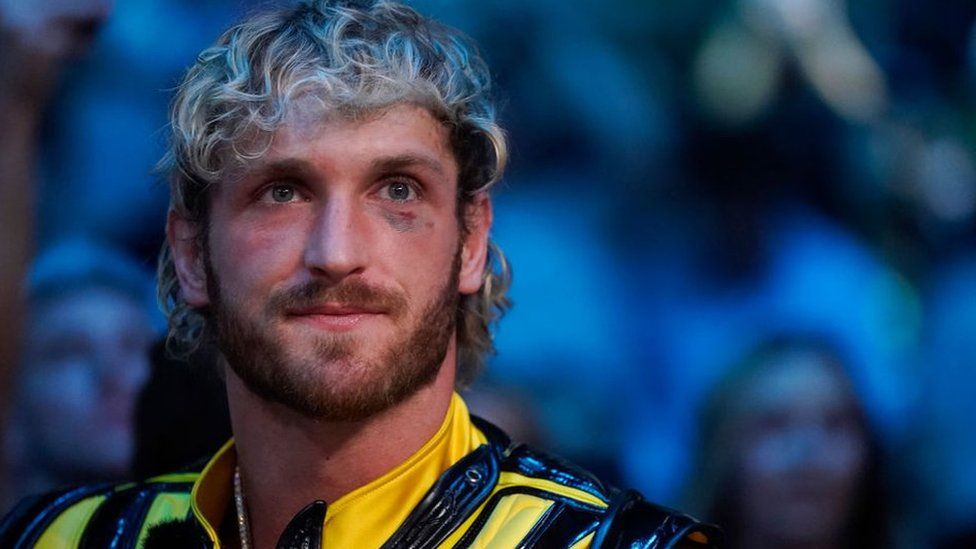Logan Paul offers partial refund for failed CryptoZoo game
 Image source, Getty Images
Image source, Getty ImagesLogan Paul has begun the process of buying back NFTs from fans who lost money in his failed cryptocurrency game.
The YouTube star announced the game CryptoZoo in 2021 but it never materialised, despite fans spending millions on game tokens.
Paul, 28, has now said he will buy back the tokens, on the condition that fans who accept do not sue him.
It is unlikely that fans will get all of their money back.
CryptoZoo was meant to be a game where players bought, sold and bred virtual animals using cryptocurrency.
At the time, Paul encouraged people to buy cryptocurrency collectables for what he called a "really fun game that makes you money".
However, after selling millions of dollars worth of NFTs and crypto coins, he stopped talking about CryptoZoo and seemingly abandoned the project.
After another YouTuber, Coffeezilla, released a series of videos showing his investigation into the project in December 2022, Paul apologised, saying he wanted to "make this right".
A year on, he has now announced the start of the buy-back process, which he says will cost him $2.3m (£1.8m).
He will refund players 0.1 Ether, which is a cryptocurrency, per NFT that was bought.
The NFTs were originally sold in September 2021 for 0.1 Ether.
However, its monetary value has dropped by 37% since the launch of CryptoZoo NFTs, which means fans will still lose out financially.
In a post on X, formerly Twitter, Paul said: "This buy-back is a way for me to make whole those who intended to play CryptoZoo.
"The buy-back is not intended to compensate those who gambled on the crypto market and lost."
He added that it was "not intended as an investment vehicle".
People have until 8 February 2024 to accept the refund, and must do so on the condition that they do not make any legal claims against Paul and other people connected to CryptoZoo.
One investor who spent $40,000 on NFTs told the BBC last year that he was not interested in a refund and wanted Paul to complete the project to make sure the much-hyped game and NFTs fulfilled their much-hyped potential.
"I don't think it will ever be as big as it could have been but I think it's important that 'founders' do what they promise investors," the 35-year-old said.
Paul previously promoted cryptocurrency coin Dink Doink in June 2021, which crashed in value and is now worthless.
He later told the New York Times that he regretted promoting the coin without disclosing the fact that he had helped create it and had a financial stake in the cryptocurrency.
"I definitely didn't act as responsibly as I should have," he said.
The CryptoZoo case "highlights the risks associated with investing in a relatively new and unregulated market", says lawyer Syedur Rahman, partner at firm Rahman Ravelli who specialises in crypto fraud-related cases.
While Mr Rahman does not think the high-profile cases will have a big impact on the reputation of cryptocurrency overall, he does say that it promotes "discussions about the necessity of additional regulations".
The level of regulation differs from country to country, but Mr Rahman says consumers "may well have rights in NFT purchases or things of that nature".
Whether they wish to go through litigation to get back their initial spend depends on how much they put in in the first place, he says – as the cost and inconvenience of going through the courts may outweigh the amount they get back.
Related Topics
-
-
Published9 January 2023
-
